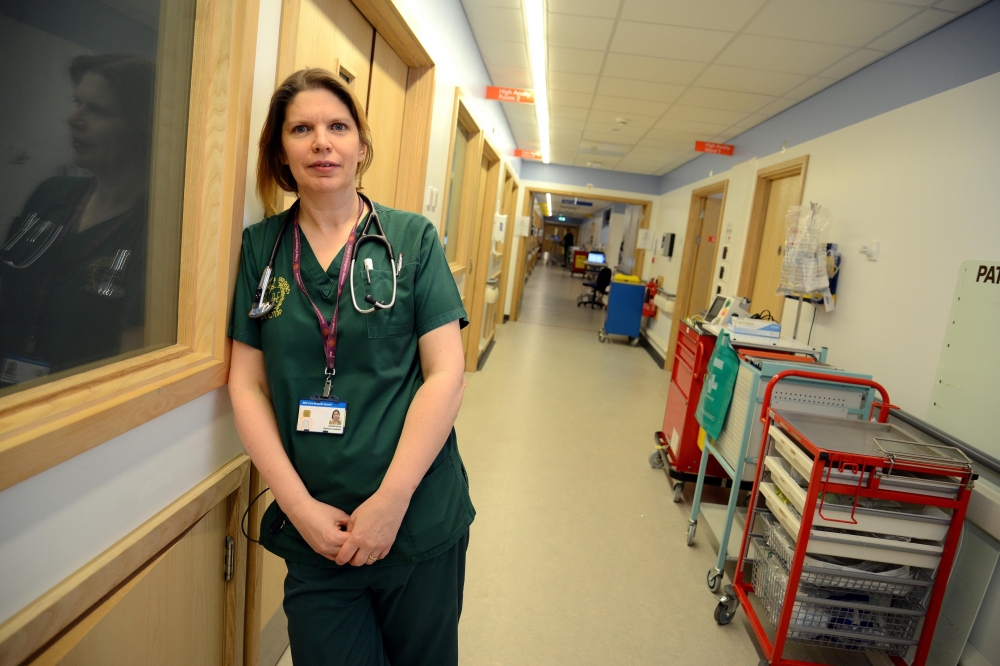Shocking impact of alcohol misuse on emergency departments revealed
A new Balance report reveals the shocking impact of alcohol misuse on North East’s emergency and urgent care departments
• The cost of alcohol-related emergency department (ED) attendances at one of the region’s largest hospitals is conservatively estimated at £1m per annum.
• ED and urgent care staff have become “immersed in effects of alcohol” and “desensitised to its impact.”
• Hospital staff experience physical, verbal and sexual assaults from patients under the influence of alcohol.
• Younger women in their 20s and 30s and older people are increasingly arriving in EDs with alcohol-related issues.
Alcohol misuse is placing an unsustainable burden on the region’s emergency departments and urgent care services, according to a new report released today by Balance, the North East Alcohol Office.
The report reveals that the cost of alcohol-related ED attendances at one of the region’s largest hospitals has been conservatively estimated at £1m per annum.
The shocking toll alcohol is placing on the region’s urgent care services is revealed in the report, with staff in urgent care settings across the North East dealing with the impact of alcohol misuse on a daily basis, including verbal, physical and sexual abuse.
The report includes a variety of interviews with consultants, nurses and other members of staff from across the region’s urgent care services and was carried out to assess the impact of alcohol misuse on their working lives.
Unsurprisingly, they’ve had enough. In the region’s larger EDs, it is common to treat 30 to 40 patients a day who have been drinking, diverting resources from other cases and placing a huge strain on department resources and the staff themselves.
The report lays bare the true feelings of the hard-working staff who have to deal with alcohol-related incidents on a daily basis.
It revealed:
• The problem is so great that some of the region’s larger EDs employ security guards to help maintain order.
• Alcohol-related attendances account for 72% of cases on Fridays and Saturdays from 2am – 3am at Newcastle’s RVI.
• Staff are feeling under more pressure than ever, routinely working night shifts with no break and facing the constant threat of physical assault and verbal abuse.
• This is exacerbated by the disruptive impact of intoxicated patients, who risk having a detrimental effect on the wider patient experience.
A senior ED consultant at Newcastle’s RVI noted: “It’s not uncommon over the weekend to have a number of disruptive drunk patients being rude and in various states of undress, all of which has the potential to be distressing to other patients, particularly elderly or vulnerable groups. The department has invested significantly in a permanent security presence, seven days a week.”
Latest figures from Balance estimate that alcohol costs the NHS £2.7bn annually, with the North East figure totalling £242m, equating to £93 per person per year in the region.
Dr Kate Lambert, a senior ED consultant at Sunderland Royal Hospital, said: “There is unprecedented demand for our services and our staff are working under massive pressure, occasionally with the threat of physical assault and frequently on the end of verbal abuse from intoxicated patients.
“Particularly around times like the festive season and New Year, we experience some of our busiest days, when we’re seeing cases of unexpected drunkenness resulting in accidents, fights or other problems related to drinking too much.
“I’d say with the verbal aggression we receive, we’re just used to dealing with it and we manage it as we would with any other patient. We have had staff spat at and injured by intoxicated patients and it’s particularly distressing for the whole department. I think it’s very important to highlight the issues we’re facing on a daily basis and we’re pleased to be working in partnership with Balance to do just that.”
Sue Taylor, Partnerships Manager at Balance, the North East Alcohol Office, said: “Probably the most shocking aspect of our report is the fact that so many urgent care staff expect to experience physical and verbal abuse as a result of alcohol, as part of their working lives.
“It’s clear that alcohol is placing a huge burden on urgent care staff, who are committed to helping us when we need them the most. At a time when the NHS is already under massive pressure, alcohol is placing an unnecessary and unsustainable weight on time and resources.
“This report reinforces the fact that we need to bring alcohol harms under control by making alcohol less affordable, available and widely promoted. We need the Government to take action and introduce a range of targeted, evidence-based measures, such increasing the tax on the most harmful alcohol products, notably white cider, in the March budget – and introducing a minimum unit price, which would increase the price of the cheapest, strongest alcohol products. Such measures would save lives, reduce hospital admissions, cut crime and lesson the financial burden alcohol places on the emergency services.”
